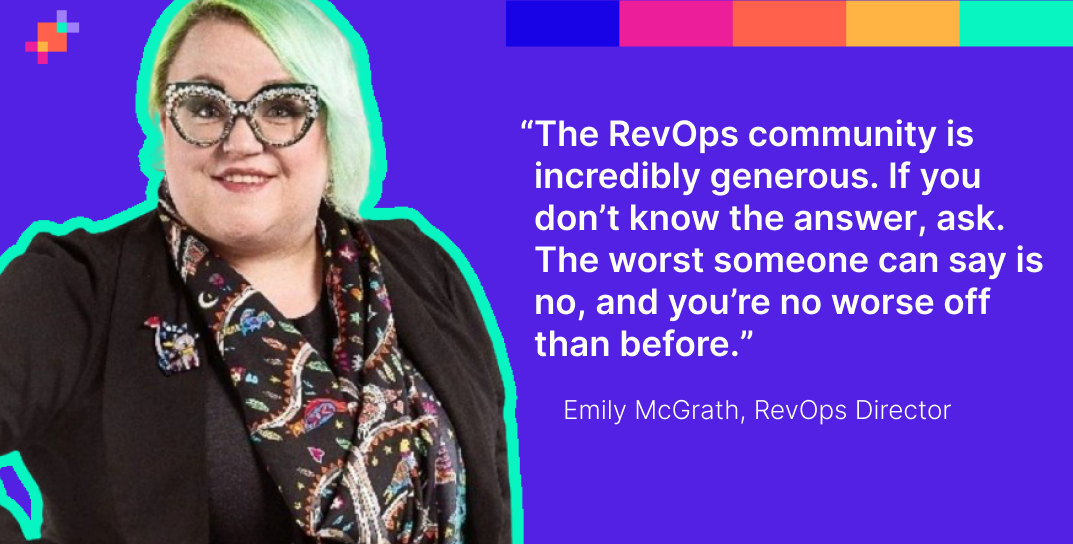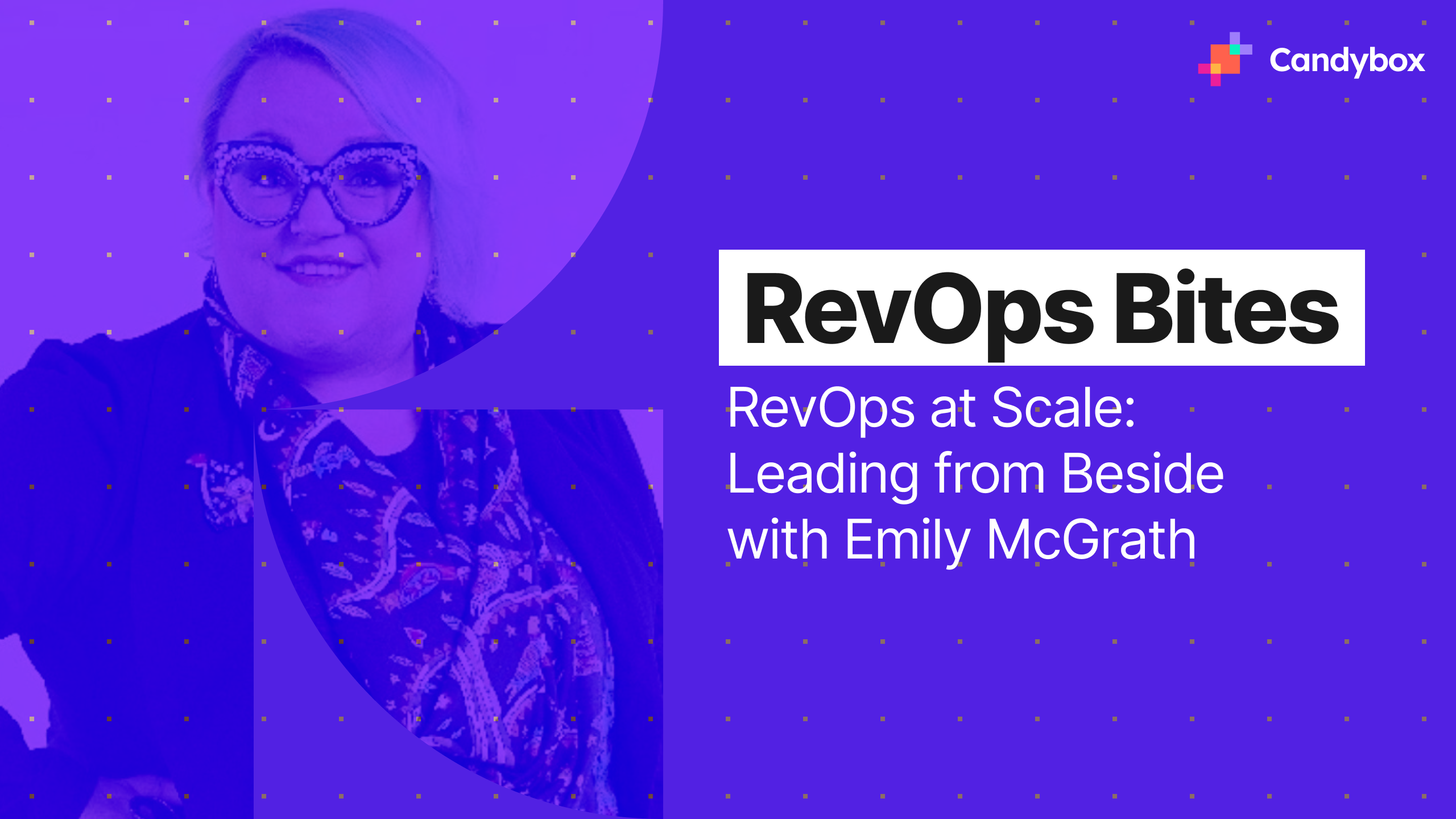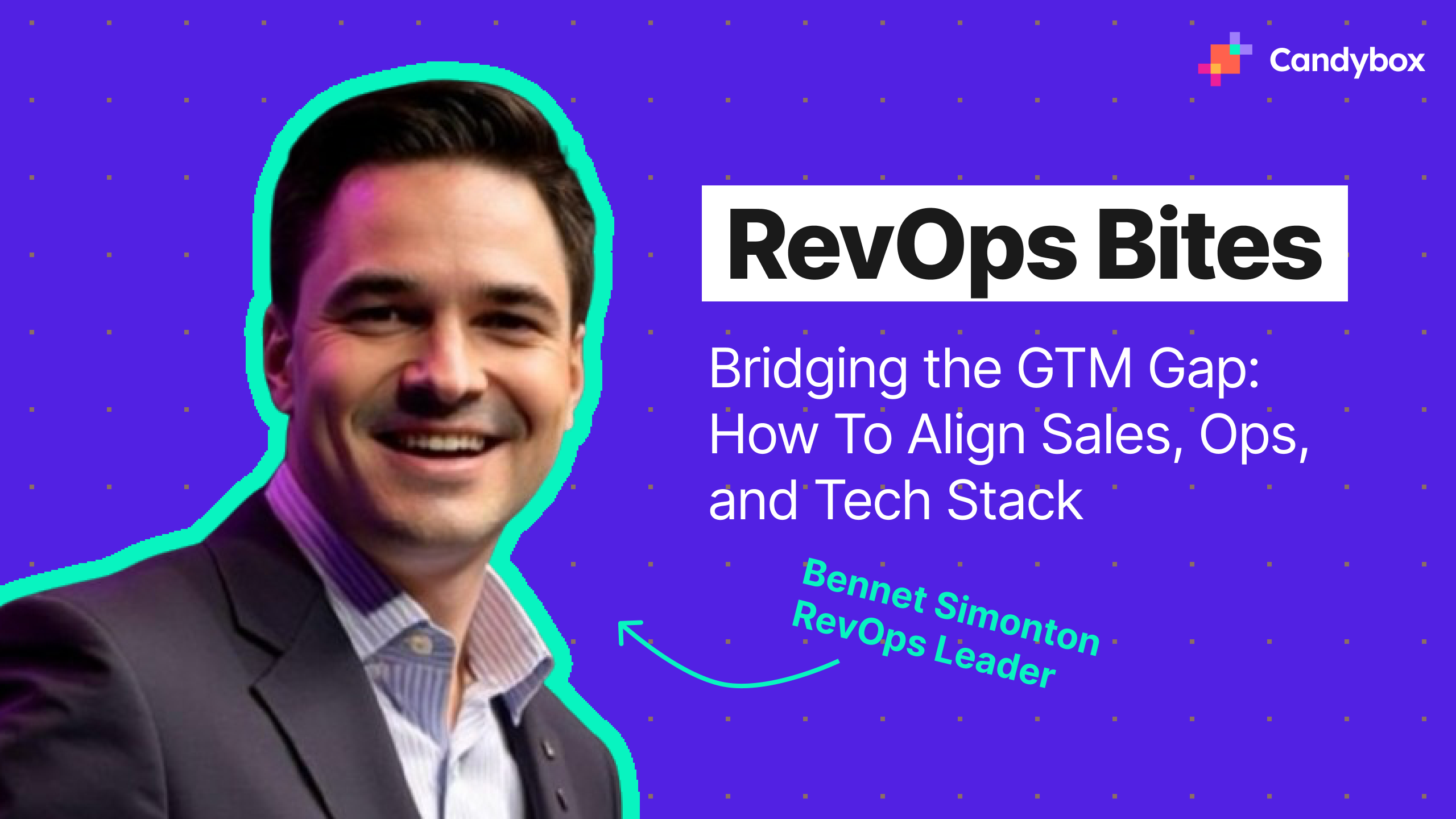Being the first RevOps hire at a company isn’t for the faint of heart. You’re dropped into the deep end, handed the keys to Salesforce, and told to “make it work.” For many of us, it’s a sink-or-swim moment that shapes how we approach the role for the rest of our careers.
In our latest episode of RevOps Bites, Kathryn sat down with Emily McGrath, Revenue Strategy & Operations Manager at Hypori, to talk about navigating those moments, why curiosity is one of the most underrated RevOps skills, and her philosophy of leading from beside.
From Happy Accident to Career Calling
Like many in RevOps, Emily didn’t map out a straight path into the role. She started in account and contract management before being "thrown into Salesforce with an admin license on day one."
Instead of shying away, she dove in headfirst. That curiosity and willingness to figure things out became the foundation of her career.
"For me, stepping into a world where I could say, I don’t know the answer, but let’s find it, was where I thrived."
That mindset of equal parts resourcefulness and partnership is what has carried her from supporting sales teams to shaping RevOps strategy.
Why Change Management Is About People, Not Process
RevOps is often viewed through the lens of systems, data, and process. But as Emily reminds us, real success comes from how you work with people.
Her approach is called leading from beside.
When you roll out change, whether it’s a new process, system, or way of working, dictating from above almost always creates resistance. Instead, Emily advocates for building trust first:
- Listen deeply to the people impacted.
- Tie changes back to what matters for them individually and for the business.
- Communicate the why in a way that feels collaborative, not imposed.
"Point B may seem scary because we’ve never been there before. But when you position yourself as a trusted partner, you’re not forcing change... you’re guiding people through it."
Building Trust as a Team of One
When you’re the solo RevOps hire, the first 90 days can set the tone for everything that follows. Emily recommends:
- Meet every stakeholder early. From execs to frontline reps, each perspective matters.
- Map the lead-to-cash process. Identify where the gaps and redundancies are.
- Look for quick wins. Automations, alerts, or small tweaks that make life easier for teams go a long way in proving value.
- Balance quick fixes with scale. Sometimes you need a band-aid, but always document the “why” so you can revisit it later.
Quick wins earn trust. Trust buys you time to build scalable solutions.
Data Hygiene: The Unseen Change Agent
Data projects can feel invisible until the problems bubble up. Emily shared how she frames data hygiene in a way stakeholders care about: connect it back to what they need. Whether that’s cleaner forecasting, faster renewals, or better customer expansion.
By showing how messy data slows them down (or creates risk), she builds urgency around cleanup.
Staying Curious, Staying Connected
For those looking to strengthen their change management or relationship-building skills, Emily recommends leaning into curiosity and community.
She highlights resources like communication frameworks (Nonviolent Communication was on her current reading list) and encourages RevOps pros to connect with others online on LinkedIn, in Slack communities, or even by hopping on a Zoom.

Final Thoughts
This conversation with Emily was a reminder that RevOps isn’t just about systems; it’s about trust, communication, and the willingness to lead from beside.
For anyone stepping into a solo RevOps role, Emily’s advice rings clear: stay curious, build relationships early, and don’t underestimate the power of trust in driving successful change.
Watch the full episode here:











.png)
.png)


